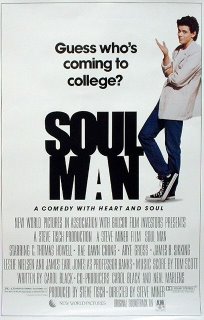Minority Aid Becomes Available to All Students

Now THIS is what I call "affirmative action"
In a surprising (and quiet) development, colleges around the country have flung open the doors of discriminitory financial aid and admissions to all deserving students, regardless of ethnicity or gender. Millions of dollars, formerly available to exclusive groups of minority and female students, is now available to any candidates who meet other qualifying criteria.
Obviously, this has been received well by some students, academics and members of conservative organizations opposed to preferential treatment - while others are none too happy with the news.
The actual metrics on this trend are difficult to measure, given that most schools have chosen to keep these changes under the public radar. But colleges such as Washington University in St. Louis, State University of New York and Southern Illinois University have made such adjustments to their policies.
Travis Reindl, director of state policy analysis at the American Association of State Colleges and Universities, has estimated that there are thousands of scholarship and fellowship programs that have been using race as a criterion. Mr. Reindl believes that at least half of the four-year colleges in the United States have now either reviewed or modified such programs.
For me, I am heartened to hear such news. If our lofty goals as a society include the attaining of true equality, then there can be no place for "affirmative action" or other discriminitory practices. A white kid who grows up poor is no better off than a black kid from similar economic circumstances, and a woman should never be given extra points in a college application for her gender. That is not equality - that is a handout.
In a surprising (and quiet) development, colleges around the country have flung open the doors of discriminitory financial aid and admissions to all deserving students, regardless of ethnicity or gender. Millions of dollars, formerly available to exclusive groups of minority and female students, is now available to any candidates who meet other qualifying criteria.
Obviously, this has been received well by some students, academics and members of conservative organizations opposed to preferential treatment - while others are none too happy with the news.
Theodore M. Shaw, president of the NAACP Legal Defense and Educational Fund Inc., voiced his frustration. "How is it that they conclude that the great evil in this country is discrimination against white people? Can I put that question any more pointedly? I struggle to find the words to do it because it's so stunning."
Roger Clegg, president and general counsel of the Center for Equal Opportunity, had this to say, "Our concern is that the law be followed and that nobody be denied participation in a program on account of skin color or what country their ancestors came from."Why the turnabout? It appears that many universities and colleges, fearing litigation on exclusion programs, are reacting to two 2003 Supreme Court cases that addressed the use of race in admissions at the University of Michigan. Although these cases did not impose an outright ban on the use of race as a factor in admissions to higher education, the findings did not support doing so.
The actual metrics on this trend are difficult to measure, given that most schools have chosen to keep these changes under the public radar. But colleges such as Washington University in St. Louis, State University of New York and Southern Illinois University have made such adjustments to their policies.
Travis Reindl, director of state policy analysis at the American Association of State Colleges and Universities, has estimated that there are thousands of scholarship and fellowship programs that have been using race as a criterion. Mr. Reindl believes that at least half of the four-year colleges in the United States have now either reviewed or modified such programs.
For me, I am heartened to hear such news. If our lofty goals as a society include the attaining of true equality, then there can be no place for "affirmative action" or other discriminitory practices. A white kid who grows up poor is no better off than a black kid from similar economic circumstances, and a woman should never be given extra points in a college application for her gender. That is not equality - that is a handout.
























<< Home